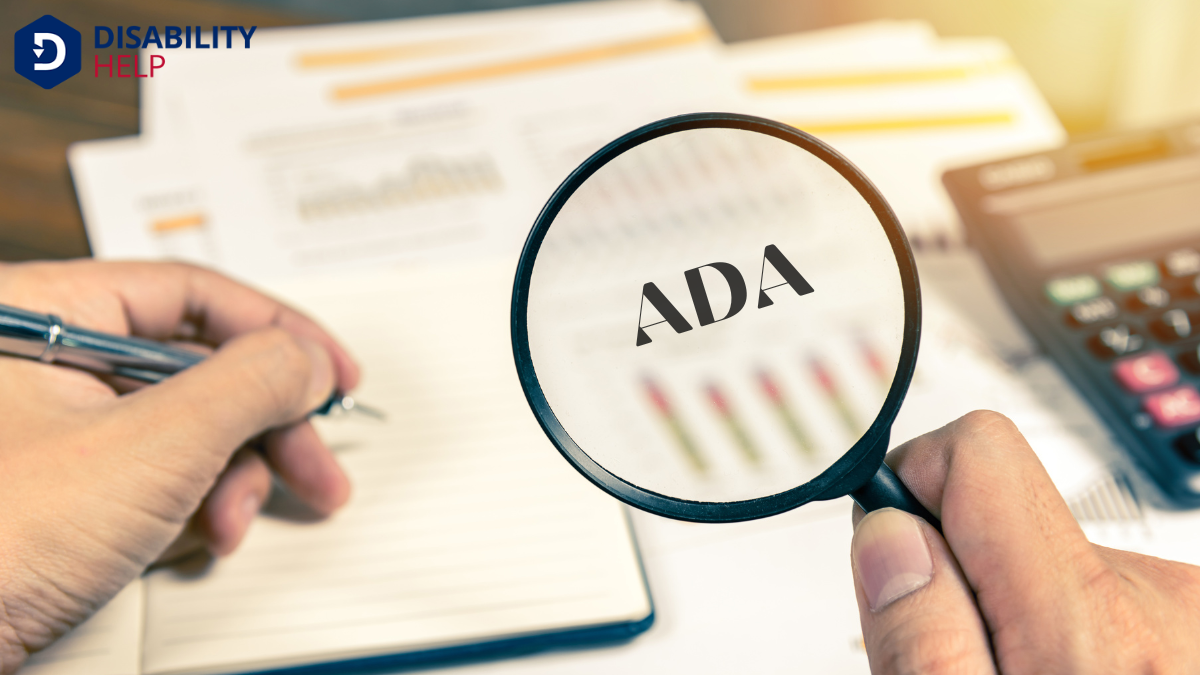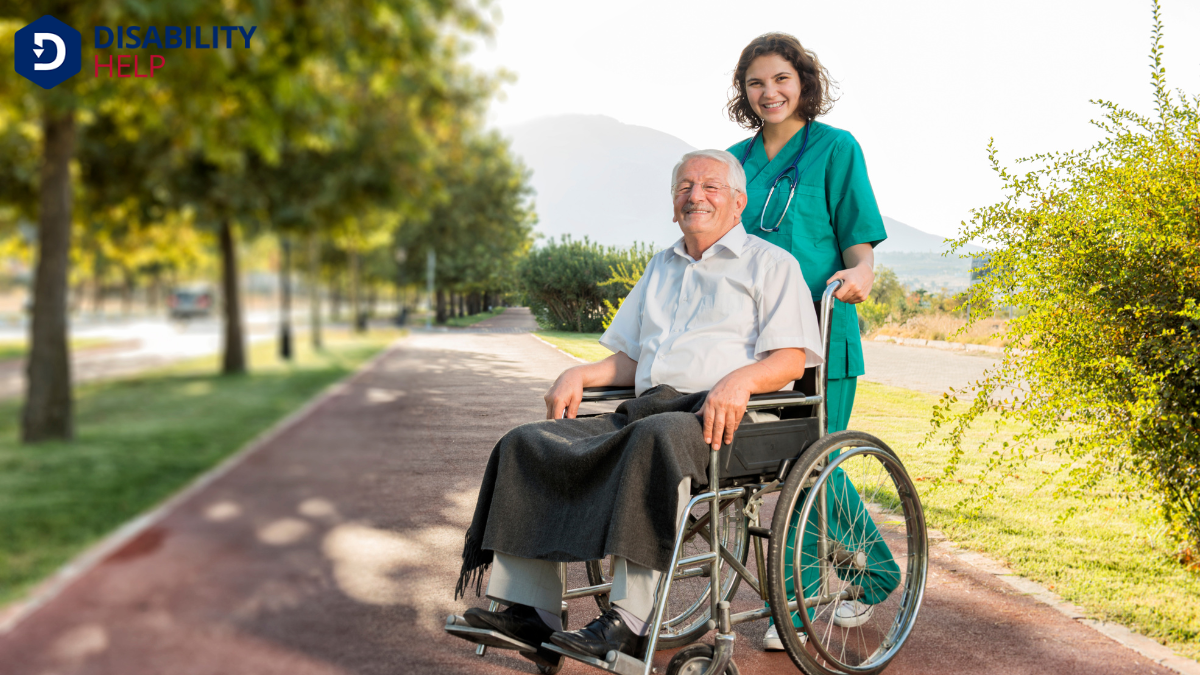As we explore whether caregivers of disabled individuals are protected under discrimination laws, we need to contemplate the nuances of existing legislation. While caregivers themselves aren't directly shielded by most discrimination laws, they do receive some level of protection under specific provisions like the Americans With Disabilities Act. This act offers certain safeguards against discrimination by association. Let's unpack how these legal frameworks affect caregivers and where they might fall short.
Key Takeaways
- Caregivers are indirectly protected under discrimination laws due to their association with disabled individuals.
- The ADA prohibits employment discrimination against individuals associated with disabled persons.
- FMLA allows caregivers to take unpaid leave without fear of job loss.
- Current laws often do not cover part-time caregivers or those in smaller companies.
- Anti-discrimination laws lack specific provisions addressing caregivers' unique challenges.
Understanding Discrimination Laws Relevant to Caregivers
When we're talking about discrimination laws relevant to caregivers of disabled people, it’s important to start by understanding what these laws aim to protect. They focus on ensuring that caregivers don't face unfair treatment due to their association with a person with a disability.
These laws recognize the unique challenges caregivers face and seek to prevent discrimination in employment, housing, and public accommodationsModifications or adjustments in healthcare settings to support patients with disabilities..
We should note that caregivers mightn't always receive direct protection under these laws; however, they can benefit indirectly. Discrimination based on their caregiving role can be viewed as discrimination by association.
It's vital to be aware of our rights and the protections available. By understanding these laws, we empower ourselves to advocate for fair treatment and challenge discriminatory practices effectively.
Analyzing the Americans With Disabilities Act and Its Impact

Although the Americans With Disabilities Act (ADA)A U.S. law that prohibits discrimination against individuals with disabilities in all areas of publi... primarily focuses on protecting the rights of individuals with disabilities, it also has significant implications for caregivers. Under the ADA, we've seen that caregivers experience indirect benefits from provisions designed to prevent discrimination.
Employers can't discriminate against employees based on their association with a person with a disability. This means if we're caring for someone with a disability, our job security receives a layer of protection.
Additionally, the ADA encourages workplaces to become more accommodating and understanding. While it doesn't explicitly list caregiver protections, it fosters an environment where our roles are respected.
We mightn't receive direct legal shield, but our connection to those we care for prompts employers to reconsider policies that could unfairly impact us.
Exploring the Family and Medical Leave Act for Caregivers
As we explore the Family and Medical Leave Act (FMLA)A U.S. law that provides eligible employees with unpaid, job-protected leave for family and medical ..., we find it offers crucial support for caregivers managing the demands of work and family. This federal law allows eligible employees to take unpaid, job-protected leave for specified family and medical reasons.
For caregivers, this means they can tend to their loved ones with serious health conditions without fear of losing their jobs. Under FMLA, caregivers are entitled to up to 12 weeks of leave within a 12-month period.
It covers situations like caring for a spouse, child, or parent with a serious health issue. Importantly, it guarantees that we can return to our same or an equivalent job, maintaining our health benefits during the leave.
This law provides a critical safety net for many.
Identifying Gaps and Challenges in Legal Protections
Despite the essential protections offered by laws like the FMLA, significant gaps and challenges remain for caregivers of disabled people.
We often find that these laws don't cover all caregivers, especially those working part-time or in smaller companies. This leaves many without the job security they desperately need. Additionally, the FMLA only guarantees unpaid leave, which isn't feasible for every caregiver.
We also face difficulties with workplace discriminationUnfair treatment of employees based on disability, including hiring, promotion, job assignment, term.... Many employers may not fully understand the demands on caregivers, leading to biased treatment.
Furthermore, while anti-discrimination laws exist, they don't specifically address the unique challenges caregivers encounter.
Finally, maneuvering these legal protections can be confusing and overwhelming. We need clarity and broader application to guarantee caregivers receive the support they deserve.
Advocating for Enhanced Rights and Protections for Caregivers

To guarantee that caregivers of disabled people receive the rights and protections they deserve, we must actively advocate for extensive legislative reforms.
Our current laws often overlook the unique challenges caregivers face, leaving them vulnerable to discrimination and inadequate support. By raising awareness and engaging with policymakers, we can push for changes that make certain caregivers are recognized and protected under discrimination laws.
We need to emphasize the importance of fair wages, access to respite careTemporary care provided to individuals with disabilities to give their primary caregivers a break., and anti-discrimination policies that extend beyond the workplace.
Let’s unite to amplify caregivers' voices, making certain their contributions are valued and their rights upheld. Together, we can build a supportive legal framework that reflects the critical role caregivers play in our society, making a tangible difference in their lives.
Frequently Asked Questions
How Do State Laws Differ From Federal Laws in Protecting Caregivers?
Let's explore how state laws differ from federal ones in protecting caregivers. State laws can offer additional protections, creating a safety net beyond federal regulations. We must check both to guarantee caregivers receive extensive support and rights.
Can Caregivers Receive Unemployment Benefits if They Leave Work to Care for Someone?
We acknowledge your concern about unemployment benefits. Generally, caregivers leaving work to care for someone aren't eligible for unemployment. However, requirements vary by state, so check specific state guidelines for possible exceptions or assistance programs.
Are There Any Tax Credits Available for Caregivers of Disabled Individuals?
Let's explore available tax credits for caregivers. We can take advantage of the Child and Dependent Care Credit and the Credit for Other Dependents. These can help reduce our tax burdens while supporting our loved ones.
What Resources Exist for Caregivers Facing Workplace Discrimination?
We can find resources through organizations like the Equal Employment Opportunity Commission, which provides guidance and support for workplace discrimination. Let's explore their website for information on filing complaints and understanding our rights as caregivers.
How Can Caregivers Balance Work and Caregiving Responsibilities Effectively?
Let's prioritize clear communication with employers about our dual roles. Setting boundaries and seeking flexible work options can help us. Utilizing support networks and time management strategies guarantees we balance caregiving and work responsibilities effectively.
Conclusion
As we've explored, caregivers of disabled individuals aren't directly protected under most discrimination laws, but they can benefit from the ADA's association provisions and the FMLA. However, significant gaps in coverage and support remain. It's clear that we need stronger legal protections to guarantee that caregivers are fully supported and can perform their essential roles without fear of discrimination or job loss. Let's continue to advocate for enhanced rights and protections for these critical members of our community.






